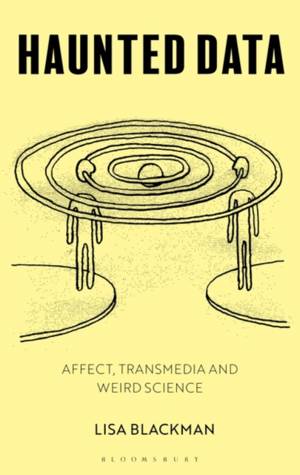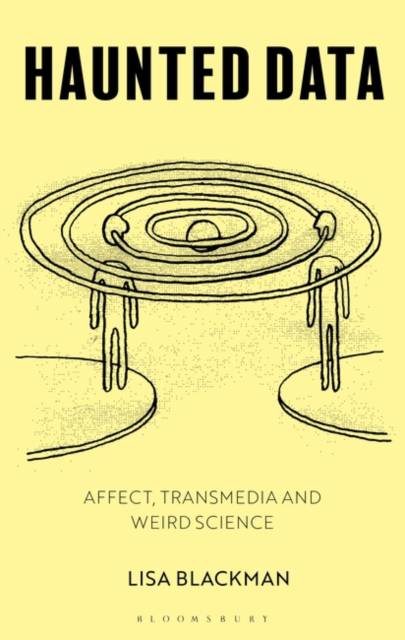
Bedankt voor het vertrouwen het afgelopen jaar! Om jou te bedanken bieden we GRATIS verzending (in België) aan op alles gedurende de hele maand januari.
- Afhalen na 1 uur in een winkel met voorraad
- In januari gratis thuislevering in België
- Ruim aanbod met 7 miljoen producten
Bedankt voor het vertrouwen het afgelopen jaar! Om jou te bedanken bieden we GRATIS verzending (in België) aan op alles gedurende de hele maand januari.
- Afhalen na 1 uur in een winkel met voorraad
- In januari gratis thuislevering in België
- Ruim aanbod met 7 miljoen producten
Zoeken
€ 186,95
+ 373 punten
Uitvoering
Omschrijving
Haunted Data explores the concepts that are at work in our complex relationships with data. Our engagement with data - big or small - is never as simplistic or straightforward as might first appear. Indeed, Blackman argues that our relationship with data is haunted with errors, dead ends, ghostly figures, and misunderstandings that challenge core assumptions about the nature of thought, consciousness, mind, cognition, affect, communication, control and rationality, both human and non-human.
Using contemporary controversies from 'weird science' including the field of priming and its uncanny relations to animal telepathy, as well as artificial intelligences and their curious relation to psychic research ('clairvoyant computers'), Blackman shows how some of the current crises in science in these areas reveal more than scientists are willing or even able to acknowledge. In addition to proposing a new theory of how we might engage with data, Haunted Data also provides a nuanced survey of the historical context to contemporary debates, going back to the 19th Century origins of modern computation and science to explain the ubiquity and oddness of our data relations.
Drawing from radical philosophies of science, feminist science studies, queer theory, cultural studies, and the field of affect studies, the book develops a manifesto for how artists, philosophers and scientists might engage creatively and critically with science within the context of digital communication.
Using contemporary controversies from 'weird science' including the field of priming and its uncanny relations to animal telepathy, as well as artificial intelligences and their curious relation to psychic research ('clairvoyant computers'), Blackman shows how some of the current crises in science in these areas reveal more than scientists are willing or even able to acknowledge. In addition to proposing a new theory of how we might engage with data, Haunted Data also provides a nuanced survey of the historical context to contemporary debates, going back to the 19th Century origins of modern computation and science to explain the ubiquity and oddness of our data relations.
Drawing from radical philosophies of science, feminist science studies, queer theory, cultural studies, and the field of affect studies, the book develops a manifesto for how artists, philosophers and scientists might engage creatively and critically with science within the context of digital communication.
Specificaties
Betrokkenen
- Auteur(s):
- Uitgeverij:
Inhoud
- Aantal bladzijden:
- 256
- Taal:
- Engels
Eigenschappen
- Productcode (EAN):
- 9781350047044
- Verschijningsdatum:
- 24/01/2019
- Uitvoering:
- Hardcover
- Formaat:
- Genaaid
- Afmetingen:
- 156 mm x 234 mm
- Gewicht:
- 535 g

Alleen bij Standaard Boekhandel
+ 373 punten op je klantenkaart van Standaard Boekhandel
Beoordelingen
We publiceren alleen reviews die voldoen aan de voorwaarden voor reviews. Bekijk onze voorwaarden voor reviews.









